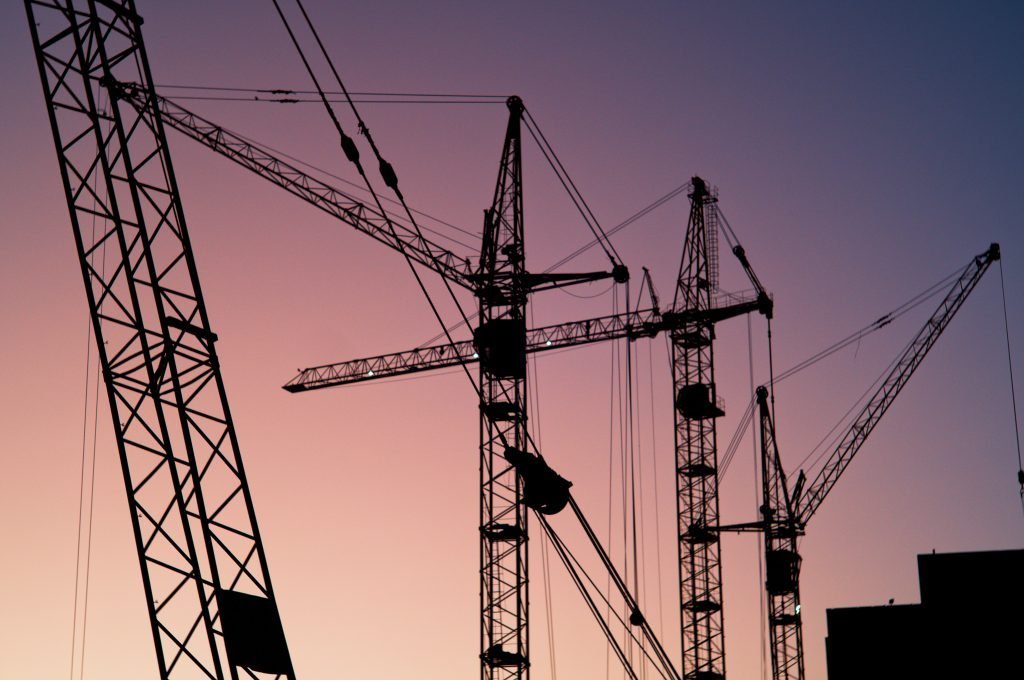Insolvencies in the construction sector have more than doubled in the space of a year. What factors lie behind the steep incline? Our business recovery and insolvency experts explain.

The construction sector has always been one of the most vulnerable to insolvency, however recent figures show that insolvencies within the industry have soared since the start of last year and the amount of construction businesses experiencing serious financial problems is rising too.
In the first quarter of 2022, the number of UK construction businesses that reported being in ‘critical financial distress’ was 51% higher than the same quarter in 2021 (Begbies Traynor). This figure is significantly higher than the 19% increase seen across the economy as a whole.
There is no singular cause for the financial distress that the construction sector is currently experiencing, but rather several key factors that continue to contribute to the growing insolvency cases.
Causes of insolvency in the construction sector
The construction industry is known to take longer than other industries to recover from the economic impact of recessions due to a delay between the return of buyer confidence and the start of new construction projects. Even when buyer confidence is on the up, the decision-making process for potential investors can be lengthy. Additionally the design and development stage of any construction project is typically a long process that causes further delays. These two factors combined can result in a start date delay of up to two years, which would mean that many construction companies are still in the very early stages of financial recovery from the COVID-19 recession. The temporary support measures implemented by the Government during the pandemic were a lifeline for the construction industry. Unfortunately when the time came for these schemes to be withdrawn, a sharp rise in insolvencies was inevitable, as struggling companies were forced to face the reality of their financial situations. Repayments of financial support schemes, such as bounce back loans and VAT payment deferrals, have already begun and are placing further pressure on construction companies that were already struggling to remain profitable. As a result, there have been widespread calls for the government to extend loan repayment periods to alleviate the strain on businesses but so far no action has been taken. Since the furlough scheme ended in September 2021, businesses have had to contend with increased staff costs. Other initiatives that were put in place to protect companies during the pandemic, such as the ban on winding up orders, have also now been removed. Delays are unfortunately a common theme across the construction sector. With contracts often allowing payments in arrears, cash flow is an ongoing issue for many construction companies. Late invoice payments and bad debts are regular occurrences, and remain two of the leading contributors to insolvency within the industry. Debt repayments and tax arrears only add to the financial difficulties that construction companies are facing, which have ultimately proven insurmountable for some. Fixed price contracts are also a significant issue at present, as a large proportion of construction projects currently underway were agreed before the pandemic and cost of living crisis. These contracted rates do not take into account the 40-year high inflation we are now experiencing in the UK and profit margins will be suffering because of it. Since the start of 2021, the construction industry has been suffering the consequences of the global materials shortage. The COVID-19 pandemic and Brexit have led to reduced access to materials such as steel, timber, plaster, bagged cement, and roofing and landscaping products across the UK. One of the most pressing issues the industry currently faces is a labour and skills shortage. Research by recruitment specialists Search Consultancy found that 83% of construction businesses are feeling the strain from a lack of skilled workers, with bricklayers and carpenters among the hardest to hire positions. Reasons for these sector-wide labour shortages include Brexit, difficulties with staff retainment and a lack of qualified workers. Inevitably, short supply and increased demand result in rising costs – prices for in-demand materials have increased by 10 to 15% (at least 50% for timber alone) and wages for skilled construction workers have also risen by almost 10% since last year. As both labour and material shortages are largely beyond the control of contractors, there is an increased risk of project delays, contract breaches and insolvencies. Construction is a notoriously competitive market. In the current uncertainty of the economic environment, businesses have become even more desperate to win clients and are prepared to lower their rates to do so. This has resulted in a price war within the industry, with many businesses undercutting their competitors and the lowest bid usually winning the tender. Although in the short-term winning projects may help a struggling business to stay afloat, lower rates lead to work being carried out with minimal margins. Cheaper projects are a temporary fix that is not conducive with long-term profitability or commercial viability. Construction projects typically involve a long line of contractors, sub-contractors and suppliers. An unstable financial situation for a company near the top of the chain is likely to have a negative impact on companies further down the chain – if a main contractor becomes insolvent, every business associated with the project will suffer financially from the income lost. If your construction business is experiencing financial difficulty, we can help you explore options for the future and support you in making the best decision for your business. The sooner you seek professional advice from one of our expert insolvency practitioners, the more recovery options you will have available to you. Contact us today to speak to one of our team.
Delayed economic recovery
End of government support
Cash flow problems
Labour and material shortages
Low profitability
A domino effect
Formal insolvency solutions




